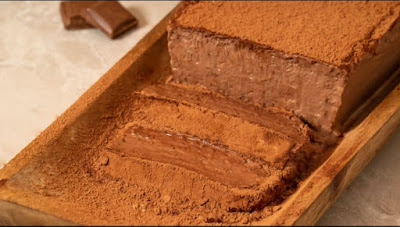Pick the right dessert to save calories
Some
desserts are “better” than others. See if you choose the right ones.
Brownie vs. chocolate layer cake vs. chocolate mousse
Your
best bet is the eggless mousse
cake or the layer cake, since both carry about 550 calories for a 6-ounce
portion.
A
typical 6-ounce brownie has about 600 calories. However, many restaurants serve
even larger brownies, 7 ounces or more. Plus, restaurants don’t stop with the
basic square of chocolate fudge. A brownie dessert typically comes with ice
cream, whipped cream, chocolate syrup, pecans, chocolate chunks and a cherry on
top. All this can add up to more than 1,200 calories.
To
satisfy your desire for chocolate, try sugar-free pudding made with skim milk.
Drop in a few chocolate chips while it’s hot or top it with light whipped
cream. You can also make no pudge brownies, a fat-free brownie mix using
yogurt. If you’re out to dinner, ask about healthy desserts.
Cheesecake vs. carrot cake vs. pound cake
Plain
cheesecake is your best bet at about 430 calories for about 4 ounces — you tend
to eat less because it’s dense and rich. Don’t be fooled by the “carrot” in
carrot cake — it isn’t just a slice of sweetened baby carrots. A 4-ounce
portion has about 500 calories, but it varies depending on the amount of
frosting used.
And
what about poundcake? The name says it all — the original recipe calls for a
pound each of butter, sugar, eggs and flour. That’s why it’s about 550 calories
for 4 ounces. Plus, because poundcake is kind of plain, it’s often served with
ice cream and/or a sauce on top, which adds 250 to 400 calories.
If
you choose carrot cake, remove some or all of the cream-cheese frosting (more
than 100 calories per ounce). Look for low-fat cheesecakes in your supermarket
— they have about 200 calories for a 3-ounce portion. If you crave poundcake,
opt for zucchini bread instead, which has about 360 calories for a 4- to
5-ounce portion, depending on preparation. Because the main ingredient is
zucchini, there is typically less “bread,” plus zucchini is a high-moisture
vegetable, which allows you to use less oil in the preparation without
sacrificing moistness.
Apple pie vs. blueberry pie
They’re
about even at 60 to 70 calories per ounce. So, with a typical home serving
coming in at 4 ounces and a restaurant serving at 6 to 7 ounces, you’re looking
at 240 to 490 calories. However, not all apple pies are created equal. For
instance, there’s apple crumb pie or apple crisp, which add 100 calories or so
per serving.
Skip
the crust and save almost 100 calories. Or, if you’re craving something sweet
at home, try baking your own apple pie and reducing the calories by using
baking Splenda and reduced-fat margarine or butter. Better yet, enjoy a baked
apple: Take out the core, dab the apple with a bit of reduced-fat margarine and
a bit of brown sugar, add some apple juice and cook for about 90 minutes at 350
degrees. You can even bake apples in the microwave or try fresh apple slices
and blueberries in Jell-O or frozen blueberries topped with low- or non-fat
whipped cream.
Try the eggless mousse cake and keep a count on calories.



Comments
Post a Comment